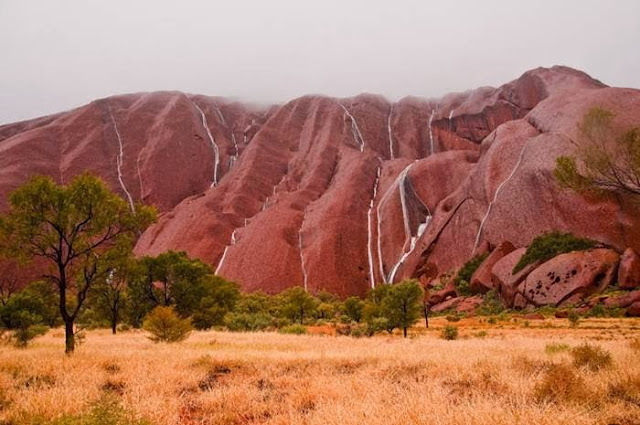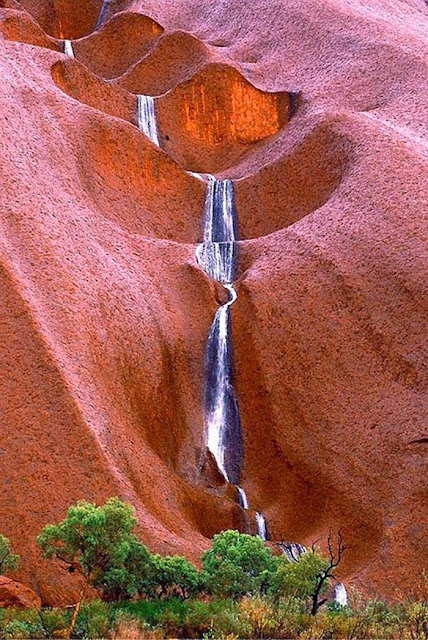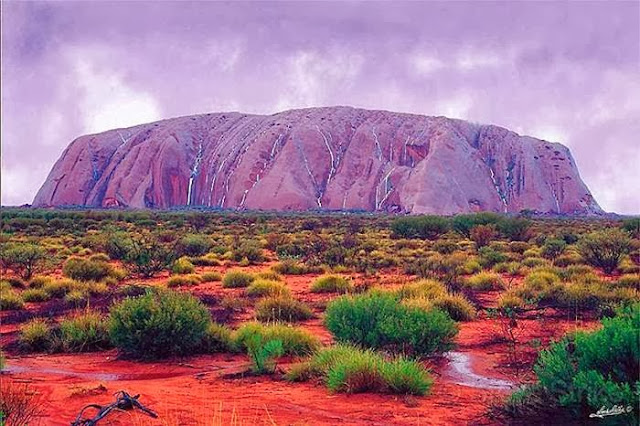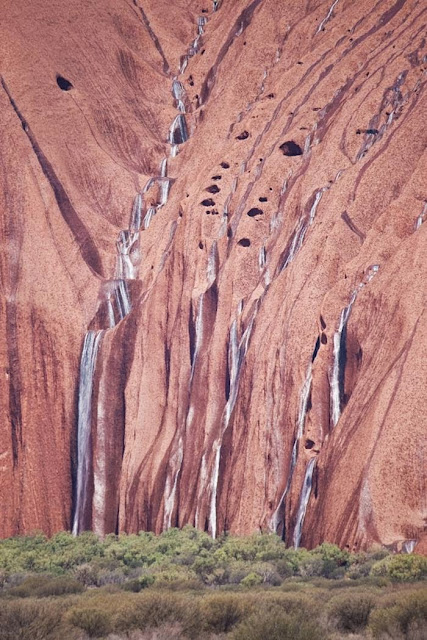Uluru visitors will not find the Red Center quite what they expected at the moment after heavy rain across the region have transformed one of Australia's most famous icons. More than 50 millimetres of rain fell in the Uluru Kata-Tjuta Park in Central Australia, creating waterfalls off the famous monolith. The park's manager, Christine Burke, says the area is coming alive in a rare treat for people travelling to the area outside the traditional tourist season.
 |
| Uluru, also known as Ayers Rock, is a large sandstone rock formation in
the southern part of the Northern Territory, central Australia. Photo — Link |
"It's something that a lot of people actually wouldn't experience,
seeing the park at this time of year when it is green and the plants are
really shooting and the flowers are coming out," He said. "So it is a
very exciting time for people to come out to the park.
The park is looking absolutely spectacular. The Spinifex has turned very
green and what you can see now is all the trees and the plants are
starting to shoot and grow new growth so the flowers are starting to
come out. "It's a very exciting time at the park now to see what happens
after we have a good rain and it looks beautiful." The heavy rains cut
off many parts of the region this week and some roads are only now
starting to dry out.
 |
| It lies 335 km south west of the nearest large town, Alice Springs, 450
km by road. Kata Tjuta and Uluru are the two major features of the
Uluru-Kata Tjura National Park. Photo — Link |
 |
| These amazing captures of waterfalls found in Uluru or Ayers Rock at
Uluru-Kata Tjura National Park sure add more fascination trekking this
huge Sandstone rock formation in Australia. Photo — Link |
 |
| The crevasses are due to erosion, primarily by water. Although it is a
dry region, the large area of these domes collects a lot of rainwater,
which runs off in steep waterfalls during rain. Photo — Link |

















No comments:
Post a Comment